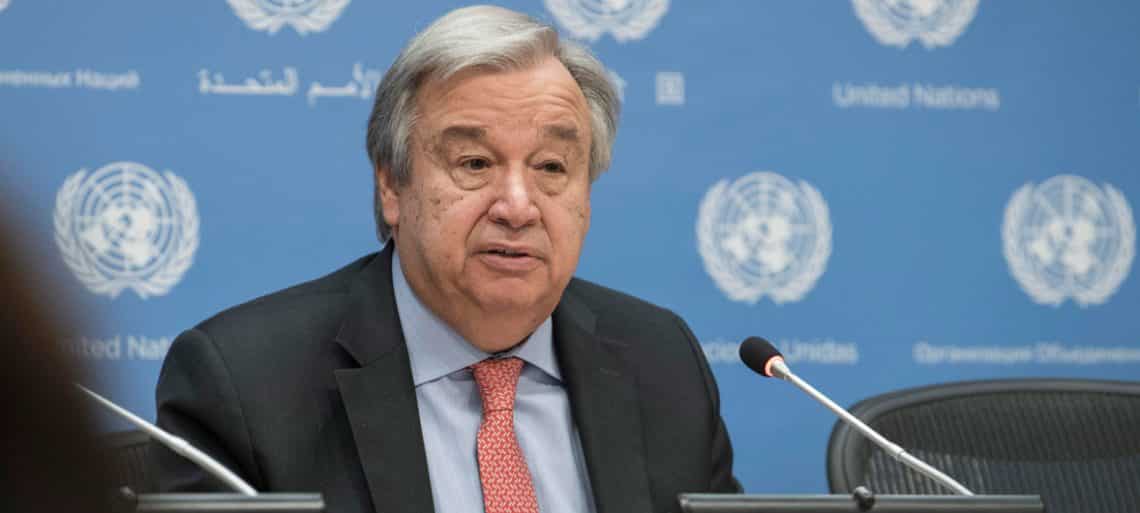|
Getting your Trinity Audio player ready...
|
By Joyce Mukucha
The United Nations (UN) Secretary-General, Antonio Guterres has described extreme poverty which is on the rise as a ‘moral indictment of the world’s times’ which requires nations to join hands in ending poverty, creating a world of justice, dignity, and opportunity and respect for all people and respect for the planet.
The UN chief pointed out that the global COVID-19 pandemic has negatively impacted economies and communities around the world with some 120 million more people falling into poverty last year.
According to the World Bank, between 88 and 115 million people are being pushed into poverty as a result of the crisis, with the majority of the new extreme poor being found in South Asian and Sub-Saharan countries where poverty rates are already high.
In 2021, it has been highlighted, this number is expected to have risen to between 143 and 163 million and these ‘new poor’ will join the ranks of the 1.3 billion people already living in multidimensional and persistent poverty who saw their pre-existing deprivations aggravated during the global pandemic.
In his message released on Friday, marking the International Day for the Eradication of Poverty, on 17 October, Guterres said, “Rising poverty a ‘moral indictment of our times. There is a need to build forward that is fighting discrimination that disadvantages people in poverty and supporting them as well as transforming the relationship with nature and much more.
“A lopsided recovery is further deepening inequalities between the Global North and South. Solidarity is missing in action – just when we need it most. There is a need to “listen far more” to those living in poverty, address indignities, and “dismantle barriers” to inclusion, in every society.
“Today and every day, let us join hands to end poverty and create a world of justice, dignity, and opportunity for all.”
Additionally, Guterres said the fight against poverty must also be a battle against inequality highlighting that vaccine inequality has enabled COVID variants to mutate and “run wild”, condemning the world to millions of more deaths, and prolonging an economic slowdown that could cost trillions of dollars.
“We must end this outrage, tackle debt distress, and ensure recovery investment in countries with the greatest need. To build a resilient, decarbonized and net-zero world, the recovery must be sustainable.”
Giving much emphasis on building forward better, Guterres outlined a three-pronged global recovery approach to ‘Building Forward Better’ that begins with stronger political will and partnerships to achieve universal social protection by 2030.
“For a transformative recovery to end to the endemic structural disadvantages and inequalities that perpetuated poverty even before the pandemic, the world must invest in job re-skilling for the growing green economy.
“And we must invest in quality jobs in the care economy, which will promote greater equality and ensure everyone receives the dignified care they deserve,” the UN chief underscored.
The recovery journey, he said, must also be focused on raising women up with economic investments targeting women entrepreneurs; formalize the informal sector; focus on education, social protection, universal childcare, health care, and decent work; and bridge the digital divide, including its deep gender dimension.
“Recovery must be inclusive so as not to leave so many behind and increase the vulnerability of already marginalized groups and pushing the Sustainable Development Goals (SDGs) ever further out of reach.
“The number of women in extreme poverty far outpaces that of men. Even before the pandemic, the 22 richest men in the world had more wealth than all the women in Africa – and that gap has only grown and we cannot recover with only half our potential”.
The UN Development Programme (UNDP) chief, Achim Steiner added that people living in poverty were bearing the brunt of changing climate pointing to UNDP’s Strategic Plan 2022-2025 as a bold pledge to lift 100 million people out of multidimensional poverty.
He said efforts were being strengthened through a plethora of initiatives aimed at supporting communities to Build Forward Better.
Hailing UNDP’s dedication to working with partners to provide 500 million additional people with access to clean, affordable energy by 2025, Steiner stressed that access to renewable energy was crucial to creating decent green jobs while driving down carbon emissions.
“Efforts like the UNDP Climate Promise are vital, helping 120 countries to reduce emissions while boosting the resilience of vulnerable communities” and also “helping to end poverty and shaping a future that will balance the needs of both people and planet”, he said.
The International Day of Eradication of Poverty which is is commemorated every year on 17 October can be traced back to 17 October 1987, when more than 100,000 people gathered at the Trocadéro in Paris where the Universal Declaration of Human Rights was signed in 1948 to honour the victims of extreme poverty, violence and hunger as well as showing solidarity with the poor.






